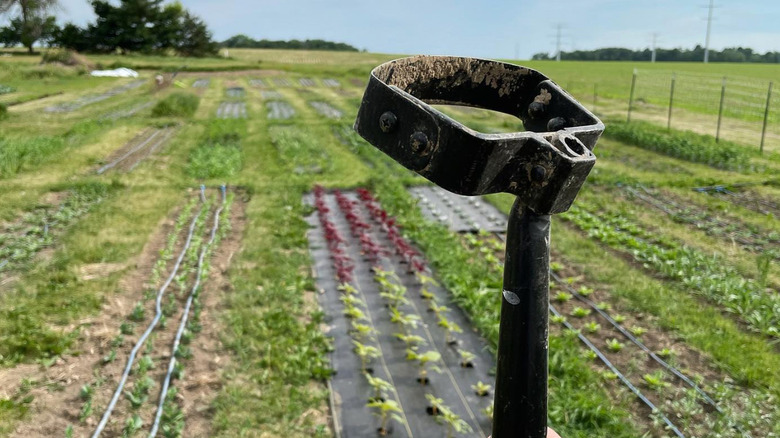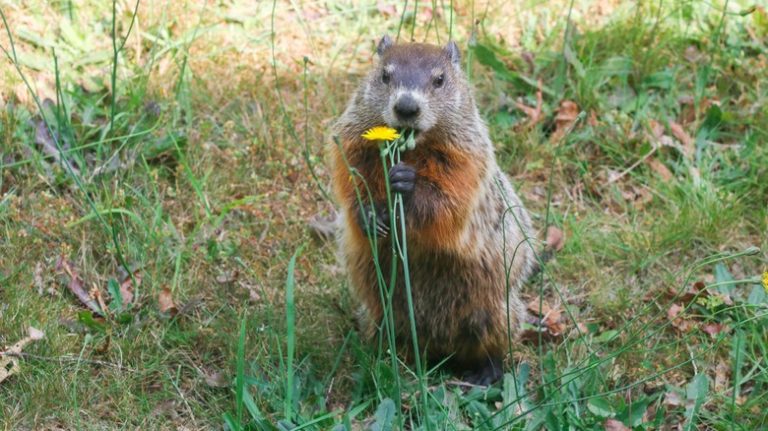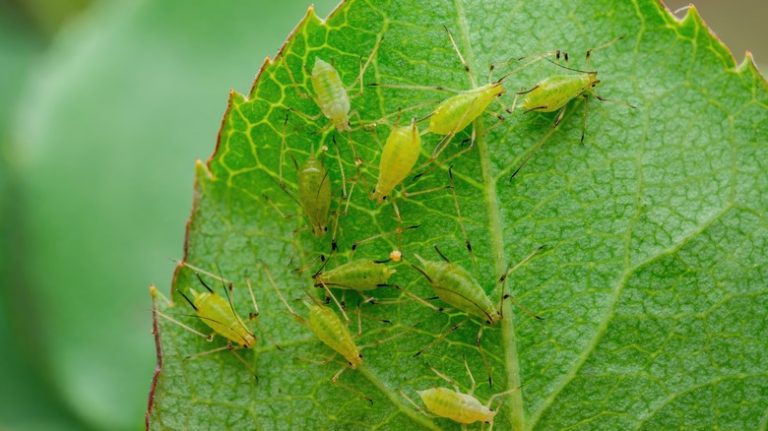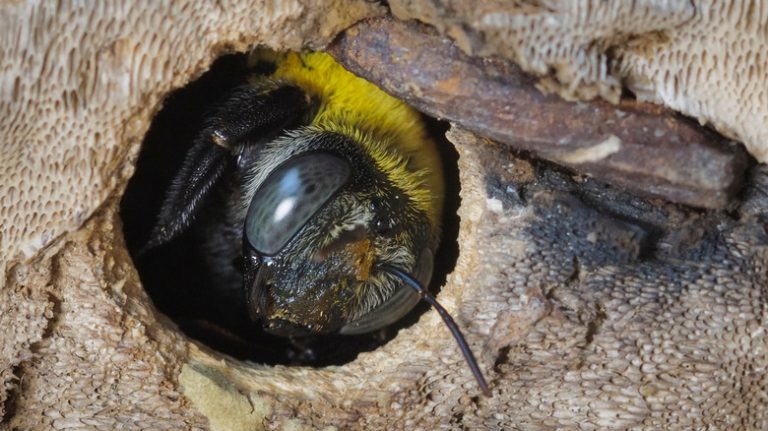Weeding is the bane of most gardeners’ existence. Frustrating, sometimes painful, and labor intensive, weeding is an integral part of having a garden or yard. However, there is an underrated gardening tool that changes the game. The scuffle hoe is an incredible weeding tool that allows you to stand while effectively removing weeds and roots in swift, repetitive motions. Say goodbye to bending over for hours with an aching back, relentlessly pulling at deeply rooted weeds.
TikToker @karissaathome’s recent video using a scuffle hoe has caused a resurgence of appreciation for this fantastic weed-removal tool. Part of what makes the scuffle hoe so incredible is its unique and genius design, which allows you to remove weeds with essentially the same effort and motion it takes to sweep the floor. The scuffle hoe removes surface weeds by applying a back-and-forth “scuffling” motion along the surface or first few inches of the soil. In effect, the scuffle hoe easily removes the root crowns of small herbaceous perennials or seedlings with minimal effort compared to the strain it takes to bend over and hand-remove those same weeds. If you’re wondering the best way to get rid of weeds in your garden, the scuffle hoe is one of your best bets. Once you start using this gardening tool, you’ll never go back!
What is a scuffle hoe?
The name though 😆 gardening gardeninghacks gardeningtips
♬ Just A Girl – No Doubt
Watch on TikTok
A scuffle hoe is a tool with a 5-foot wooden handle and a small metal trapezoid-shaped attachment at the end, usually on hinges, which allows for just the right amount of mobility to adequately shuffle the soil and weed seedlings. Also called an oscillating hoe, a stirrup hoe, or a hoop hoe, the trapezoidal or stirrup metal shape at the end is sharp on both sides, allowing the blade to cut through roots in the soil. It is an extremely valuable tool used in agriculture, landscaping, conservation, habitat restoration, and for the everyday home gardener.
Furthermore, it is an excellent precision tool for reaching hard-to-get areas and covering large weedy patches. It is such an effective tool that it is sometimes used in place of chemical herbicides. Due to its unique shape and the angle at which it is attached to the wooden handle, it makes removing weedy root systems an absolute breeze. It’s especially useful for people who have difficulty bending over or back problems since it can be used standing up with minimal effort and maximum success. Regular sharpening, however, is essential to maintain the tool’s effectiveness. While there are many different types of garden hoes, the scuffle hoe is by far the best for removing young, small weeds. The scuffle hoe is a great tool for site prep and ensuring weeds are clear from an area before installing a garden bed or for another use.
How to use a scuffle hoe to pull weeds in the garden

Instagram/@southpawfruitfarm
A scuffle hoe is best used on young weeds, annuals, or herbaceous perennials. It will not be effective for mature weeds with woody stems or roots unless used on the saplings. Using a pushing and pulling motion on the surface or about ¼ to ½ inch below the surface, you can easily scrape the scuffle hoe along the top layer of the soil, effectively removing the foliage of the weeds and cutting through the roots. If the patch is particularly dense, using a continuous push and pull motion will clear the patch completely. However, keep in mind that disturbing the soil bed can cause weed seeds to germinate, so you may have to return to the same spot and scuffle hoe more than once.
The physical motion entails keeping a straight back, holding the handle, angling the stirrup or metal part of the tool on top of the soil, and using the arms to create a push-and-pull motion. If you’re dealing with weeds that are not rhizomatic or aggressive self-seeders, you can leave the weeds in place to dry out and die. However, if the weeds you are pulling are aggressive, it’s recommended to rake them up after they’ve been scuffle hoed. Additionally, you can use a scuffle hoe to remove rhizomatic roots, like grassroots, that continue to re-sprout in areas you are trying to clear.



